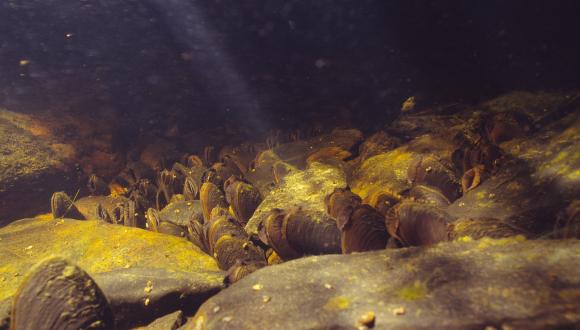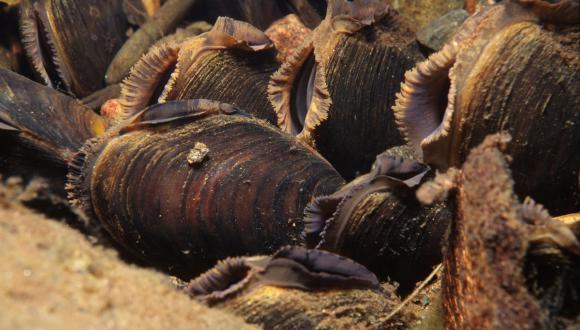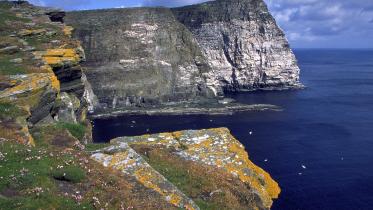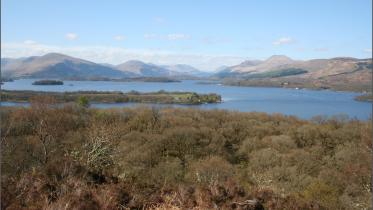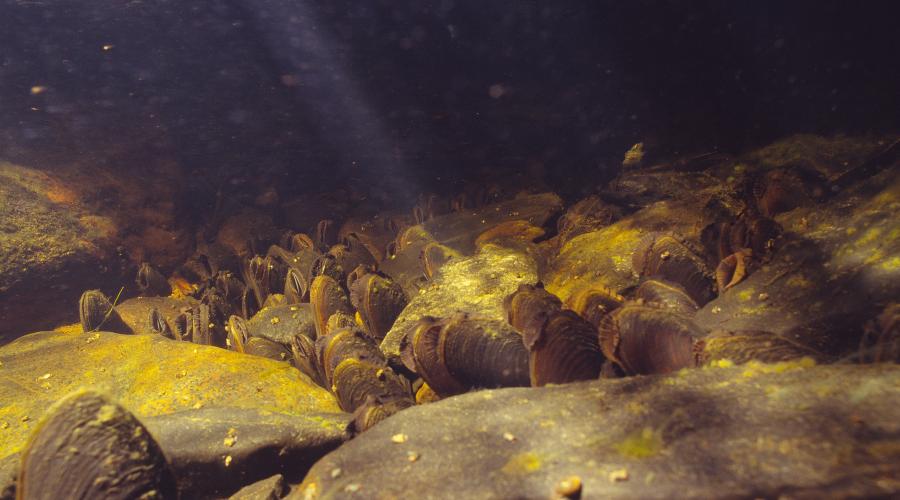
Freshwater pearl mussels discovered in Scottish lochs
4 April 2023
Critically-endangered freshwater pearl mussels are known to live in Scotland’s rivers, but new research has revealed that they are also in our lochs.
Using remotely-operated underwater drones and snorkelling equipment, a small number of pearl mussels were discovered in two lochs in Sutherland and the Trossachs. The survey was carried out by NatureScot and funded by the Scottish Government’s Central Research Fund.
The mussels are likely to have entered the lochs by clinging to the gills of a host fish, either a young trout or salmon. They spend the first year of their lives harmlessly attached to the fish, before falling off to live independently.
Freshwater pearl mussels are rare in Scotland, mainly due to ongoing, illegal pearl fishing, poor water quality and habitat damage. The mussel’s over-exploitation for centuries, and the intensification of land use, are the main reasons for the massive historic decline in its numbers and range.
As filter feeders, freshwater pearl mussels are also extremely vulnerable to water pollution and engineering work in rivers. The effects of these threats mean that, in Scotland, the species is on the brink of extinction in some rivers. NatureScot is leading efforts to conserve this important and iconic species.
NatureScot’s Iain Sime, who led the latest project, said: “Other mussel species, including the much more widespread swan and duck mussels, are known to live and breed in Scottish lochs, but up until now we’ve had no evidence to suggest that pearl mussels routinely do this too.
“This project was an exciting first step in exploring our lochs and we’re keen to do further surveys to better understand more about this critically-endangered species. We don’t yet know whether they can breed in lochs and we want to learn more about a loch pearl mussel’s relationship with their host fish.
“As a result of the research we’ll be extending our conservation management advice for freshwater pearl mussels to include lochs as well as rivers.”
